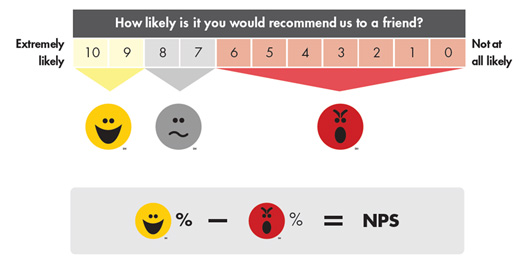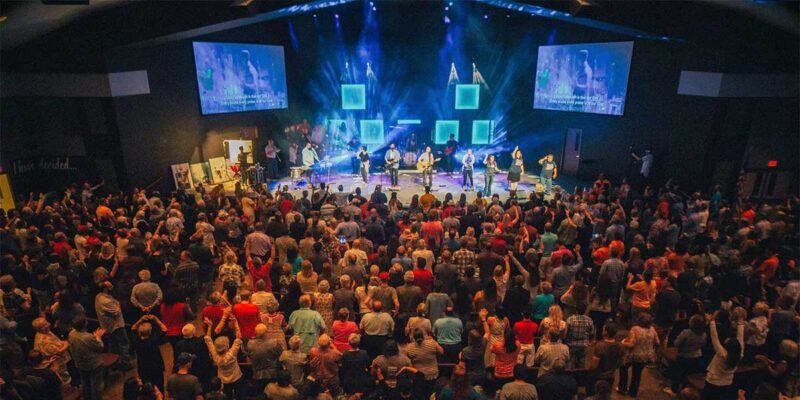Loyalty is the New Currency
 A friend of mine travels the country providing environmental projection and lighting for churches. The fact that he’s now an Executive Platinum member on American Airlines is due entirely to how frequently he travels the country providing this service to countless churches, where he introduces church leaders to the possibility of endless scenic solutions for any mood, sermon series or special event. Though he works with a wide variety of technology providers, he has developed preferences for certain brands and models which, unsurprisingly, tend to end up being purchased by the very churches that first saw the technology demonstrated in a new, compelling way in their own environment.
A friend of mine travels the country providing environmental projection and lighting for churches. The fact that he’s now an Executive Platinum member on American Airlines is due entirely to how frequently he travels the country providing this service to countless churches, where he introduces church leaders to the possibility of endless scenic solutions for any mood, sermon series or special event. Though he works with a wide variety of technology providers, he has developed preferences for certain brands and models which, unsurprisingly, tend to end up being purchased by the very churches that first saw the technology demonstrated in a new, compelling way in their own environment.
Not Just Brand Loyalty — Personal Loyalty
The house of worship market has an interesting dynamic I’ve seen for years: They are unusually loyal to brands recommended by their peers. Whereas my years of experience in the corporate and education markets had shown that peer recommendations were sometimes helpful, the church market has consistently demonstrated that the recommendation of a peer has more validity than any other market segment.
It is for this reason alone that the church market should be in the sights of manufacturers. I have countless examples of this happening in my own design-build days and also in my consulting business where a church wanted not just a specific brand, but a specific model. More than a few times I had to redirect them to another model based on their specific needs, an uphill battle worth the effort for the desired outcome. I was always surprised at how the mere recommendation of a proven technology from a peer could make such a profound impact on their purchasing decision, almost regardless of cost.
Most interesting to me was how when a senior leader (senior pastor, executive pastor, worship pastor) had heard from a peer about a technology, how quickly the red tape was cut to get the funds approved. This is something I’ve seen happen in the church space time and again, all because of personal loyalty to a brand or product!
Vendor Loyalty
Churches have long been known to standardize on a particular brand or model for the sake of consistency and ease of training. But what I find most intriguing is their penchant of being loyal for the most sublime of reasons: consistency of design.
Take, for example, a wireless beltpack for a lav mic. But not just any mic: the pastor’s mic. As new models come out and upgrades are made, consideration is made for the consistency of operation (on/off, mute switches) for the pastor. This applies to volunteer singers, musicians and tech operators, too. It’s the little things — personal preferences — that contribute to vendor loyalty.
Of course the vendor needs to have a track record of great products and great support. I recall a situation where a church had spent tens of thousands of dollars in training for their staff on some technology that had been problematic across multiple units from a particular manufacturer. It took a string of mid-service failures before the church would even consider switching vendors!
The Loyalty Metric
These stories are all true and all testify to the reality of brand and vendor loyalty, but the litmus test comes when a systems integrator of manufacturer measures just how many of their clients will actively promote their products and services. One of the most easily understood and applicable tools is the Net Promoter Score. I’m a big fan of this because the results speak for themselves.
Here’s how it works: The Net Promoter Score, or NPS, is based on the perspective that every company’s customers can be divided into three categories: Promoters, Passives, and Detractors.
By asking only one question — “How likely is it that you would recommend [your company] to a friend or colleague?” — you can track these groups and get a clear measure of your company’s performance through your customers’ eyes. Customers respond on a 0-to-10 point rating scale and are categorized as follows:
Promoters (score 9-10) are loyal enthusiasts who will keep buying and refer others, fueling growth.
Passives (score 7-8) are satisfied but unenthusiastic customers who are vulnerable to competitive offerings.
Detractors (score 0-6) are unhappy customers who can damage your brand and impede growth through negative word-of-mouth.

To calculate your company’s NPS, take the percentage of customers who are Promoters and subtract the percentage who are Detractors. That’s it for the math; it’s that simple to determine, but much more difficult to affect.
Loyalty Takes Time & Intentionality
Using NPS means not only polling clients with a simple response mechanism to provide their 1 to 10 rating, it also means looking at your business strategy as a whole and at vertical markets in particular. For example, it’s helpful to have high NPS scores in the Education market, but because a large portion of those sales are bottom-dollar bid wars, NPS can be a reflection of your value more than a vehicle for impacting the market. But in verticals like the house of worship market, where peer influence has a greater likelihood of translating into a sale, NPS becomes a holistic way of doing business.
The adage “you must inspect what you expect” is particularly true when moving the NPS score up. The follow-up question (usually provided in the original poll) is this: “Why?” You will be surprised at the reasons people give — and they should be high-value discussion fodder at your next executive meeting.
In my opinion, the house of worship market is a unique vertical that affords manufacturers, systems integrators and dealers the ability to do more to change their loyalty quotient (as identified by the NPS score) than any other market. You still have to make quality products and provide excellent customer service, but with loyalty as the new currency, the opportunity to win before the competition is involved should make churches a serious focus for the AVL industry.





